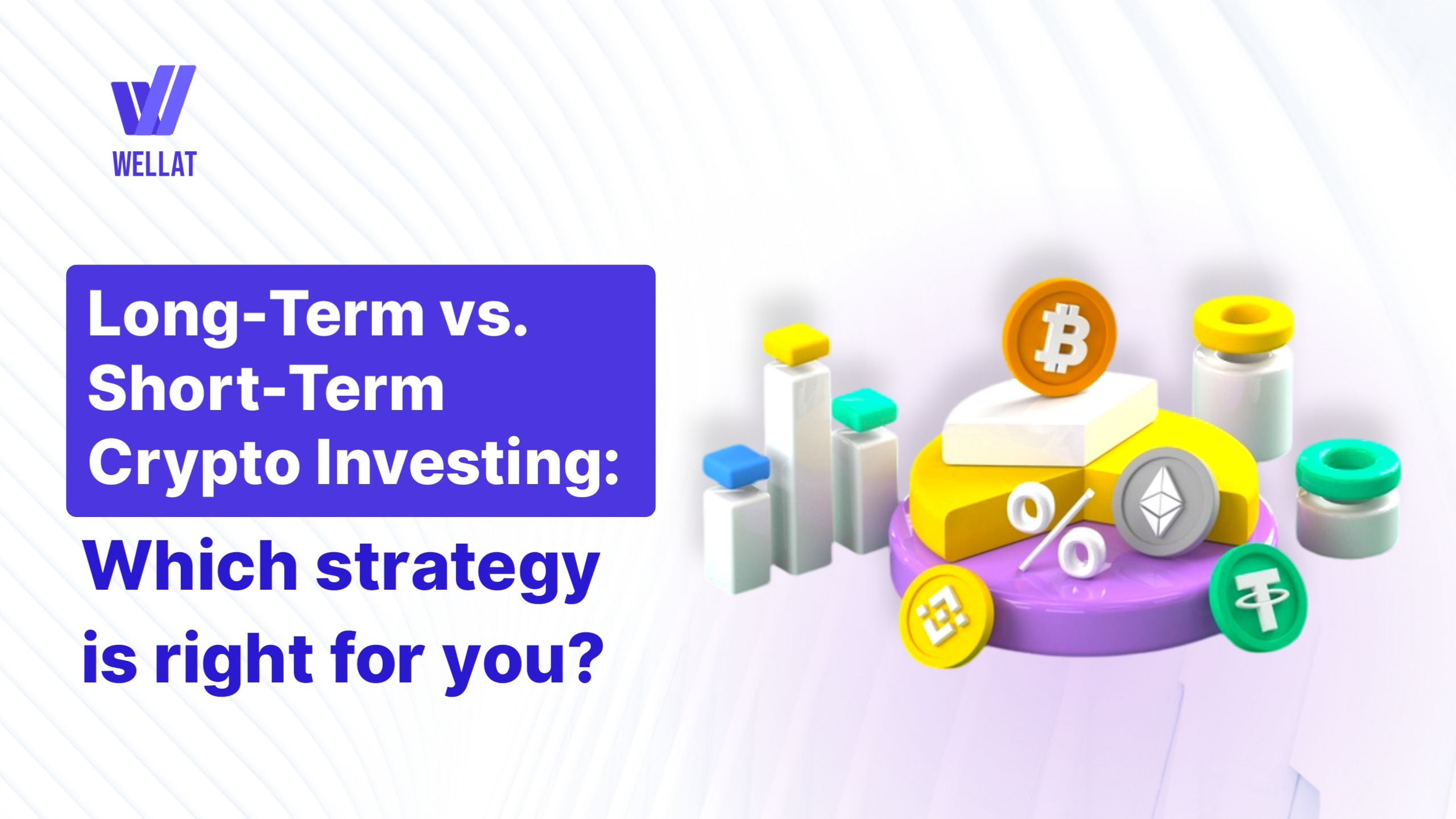Long-term vs. Short-term Trading: Which Is Best for You?
 Michael
Michael Table of contents

When it comes to trading, one of the most important decisions you'll make is whether to focus on long-term or short-term strategies. The choice between the two can greatly impact your experience, risk level, and potential returns. Let's break down what each approach involves, their pros and cons, and how you can decide which is best for you.
What Is Long-term Trading?
Long-term trading, often called "position trading" or "investing," involves holding onto assets like stocks, cryptocurrencies, or commodities for an extended period, usually months or years. The goal here is to benefit from the overall upward trend in the market.
Example: If you had bought Bitcoin in 2015 and held onto it until now, you would have made significant returns as Bitcoin’s value has steadily increased over the years despite short-term dips.
Advantages of Long-term Trading
Less Stressful: Because you're holding onto assets for a long period, you aren't as affected by daily market fluctuations. You don't have to constantly monitor the markets.
Compounding Returns: Long-term investments benefit from the power of compounding, where the returns you earn are reinvested to generate even more returns.
Lower Fees: Since you're not making frequent trades, you save on transaction costs, brokerage fees, and taxes, which can eat into your profits in short-term trading.
Tax Benefits: In some countries, long-term capital gains (profits from holding an investment for more than a year) are taxed at a lower rate than short-term gains.
More Time for Research: With long-term trading, you can thoroughly research the asset, its fundamentals, and its future potential before making a decision.
Disadvantages of Long-term Trading
Patience Required: Long-term trading requires a lot of patience. The market can go through significant ups and downs, and it can take years to see substantial returns.
Capital is Tied Up: When you commit to long-term investments, your money is locked into those assets, making it less accessible for other opportunities.
Market Risk: While markets tend to rise over time, there’s always the risk of a prolonged downturn, which could reduce the value of your investments.
What Is Short-term Trading?
Short-term trading involves buying and selling assets within a much shorter timeframe, usually from a few seconds to a few months. This approach is often associated with "day trading," "swing trading," or "scalping."
Example: A day trader might buy and sell Bitcoin multiple times within a single day to profit from small price movements.
Advantages of Short-term Trading
Quick Profits: Short-term traders aim to capitalize on small price fluctuations, potentially making profits in a matter of days or even hours.
Flexible Capital: Since trades are short-term, your money isn’t tied up for long. You can quickly reallocate it to other opportunities.
Excitement: Short-term trading can be thrilling for those who enjoy the fast-paced nature of the markets and the challenge of making quick decisions.
Diversification: By engaging in short-term trading, you can quickly switch between different markets and assets, spreading your risk across multiple opportunities.
Disadvantages of Short-term Trading
High Stress Levels: Short-term trading can be very stressful, as you're constantly monitoring the market, making quick decisions, and reacting to price movements.
Transaction Costs: Frequent trading can lead to high transaction fees, brokerage charges, and taxes, which can reduce your overall profitability.
Time-Consuming: To be successful at short-term trading, you need to spend a significant amount of time analyzing charts, tracking news, and staying up-to-date with the market.
Higher Risk: Short-term trading is inherently riskier due to the unpredictability of short-term market movements. It requires a deep understanding of technical analysis and market patterns.
Long-term vs. Short-term: How to Choose
Now that you understand the basics of both approaches, how do you decide which one is best for you? Here are some factors to consider:
Your Goals: Are you looking to build wealth steadily over time, or do you want to make quick profits? If you have a long-term goal, such as retirement or buying a house, long-term trading might be more suitable. If you're more focused on generating income in the short term, then short-term trading could be the way to go.
Risk Tolerance: How comfortable are you with risk? Long-term trading generally involves less risk, as you're giving your investments time to recover from short-term downturns. Short-term trading, on the other hand, can be more volatile and requires a higher risk tolerance.
Time Commitment: How much time can you dedicate to trading? Long-term trading is more hands-off, requiring only periodic check-ins. Short-term trading, however, demands constant attention and a significant time investment.
Knowledge Level: Short-term trading requires a solid understanding of technical analysis, chart patterns, and market indicators. If you're a beginner, long-term trading might be a better option while you build your knowledge.
Capital Availability: If you have limited capital, short-term trading might allow you to generate quicker returns and reinvest those profits. However, with long-term trading, you’ll need to be comfortable with tying up your money for an extended period.
Combining Both Strategies
You don’t have to strictly choose one approach over the other. Some traders successfully combine both long-term and short-term strategies to balance their portfolio. For instance, you might have a portion of your funds invested in long-term assets like Bitcoin or stocks, while also engaging in short-term trades to capitalize on immediate opportunities.
Example: You could hold onto a long-term investment in Ethereum, believing in its future growth, while simultaneously swing trading smaller altcoins to take advantage of short-term price fluctuations.
Conclusion: Which is Best for You?
Ultimately, the best approach depends on your personal goals, risk tolerance, and lifestyle. If you prefer a more relaxed and patient approach, long-term trading might suit you. However, if you enjoy the thrill of the markets and have the time and knowledge to commit, short-term trading could be more rewarding.
Whatever you choose, always remember to do your research, stay informed, and never risk more than you can afford to lose. Both long-term and short-term trading can be profitable when done correctly, so choose the path that aligns with your strengths and preferences.
Good luck, and happy trading!
Subscribe to my newsletter
Read articles from Michael directly inside your inbox. Subscribe to the newsletter, and don't miss out.
Written by
